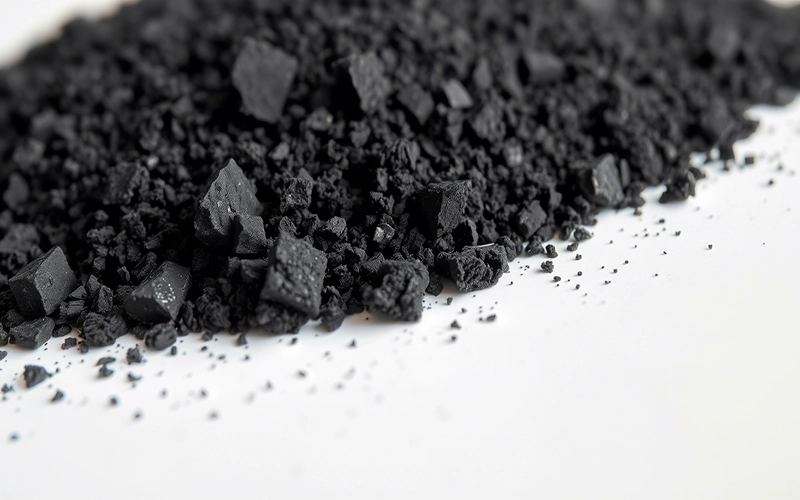Graphitized petroleum coke (GPC) is a high-purity carbon product derived from calcined petroleum coke (CPC) through a high-temperature graphitization process. In this process, the calcined coke is heated to temperatures above 2500°C in an electric furnace, which rearranges the carbon atoms into a crystalline graphite structure. This transformation significantly enhances the material’s purity, electrical conductivity, and structural stability, making GPC an essential material in several advanced industrial applications.
One of the most common uses of graphitized petroleum coke is in the production of graphite electrodes, which are used in electric arc furnaces for steelmaking. The high carbon purity (typically over 99%) and excellent electrical conductivity of GPC make it ideal for carrying large electric currents and withstanding the intense heat of melting scrap metal. These electrodes are crucial for the efficient and clean operation of electric steel plants.
GPC is also used as a carbon raiser or recarburizer in the metallurgy industry. When added to molten iron or steel, it helps to precisely control the carbon content of the final product. Its low ash and sulfur content make it especially suitable for high-quality castings and steel grades that demand minimal impurities. Compared to other carbon additives like anthracite or standard petroleum coke, graphitized coke offers superior performance and consistency.
In addition to steel and foundry applications, graphitized petroleum coke is finding increased use in battery manufacturing, particularly in the production of anodes for lithium-ion batteries. Its graphite-like structure contributes to high electrical conductivity and energy density, both of which are critical for battery efficiency and longevity. As demand for electric vehicles and renewable energy storage grows, GPC is becoming a valuable material in the global energy transition.

The production of GPC, however, is energy-intensive due to the extreme temperatures required for graphitization. Therefore, it is typically used in applications where its unique properties—such as ultra-high purity, thermal resistance, and conductivity—are essential and justify the cost of production.
In summary, graphitized petroleum coke is a premium carbon material valued for its high purity, superior conductivity, and stable crystalline structure. It plays a vital role in steelmaking, metallurgy, and energy storage technologies. As industries continue to evolve and demand higher performance materials, GPC remains a critical component in high-tech and heavy industrial applications.
Used as carbon raiser to produce high-quality steel, cast iron and alloy
Used to improve the carbon content in steel-melting and iron-casting like ductile iron foundry.
Used in plastic and rubber as an additive.

| Element | C | S | Ash | Moisture | Size | Origin |
|---|---|---|---|---|---|---|
| Percent | 98.5 | 0.03-0.05 | 0.05 max | 0.5 max | 1-3mm | China |